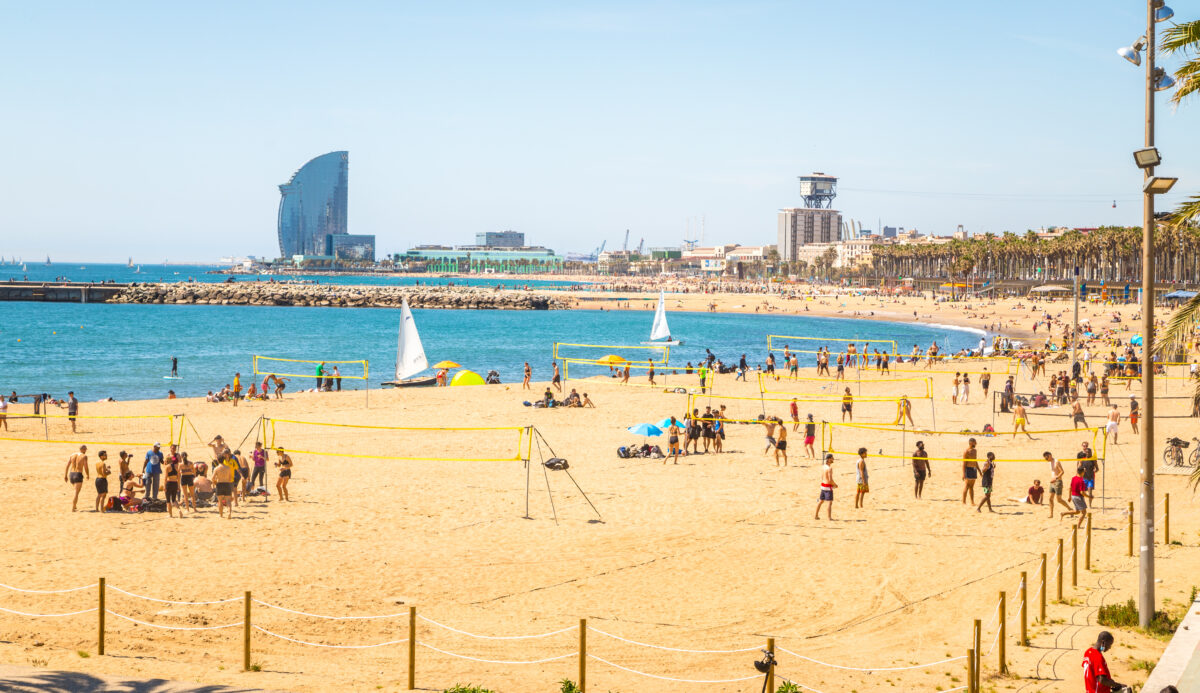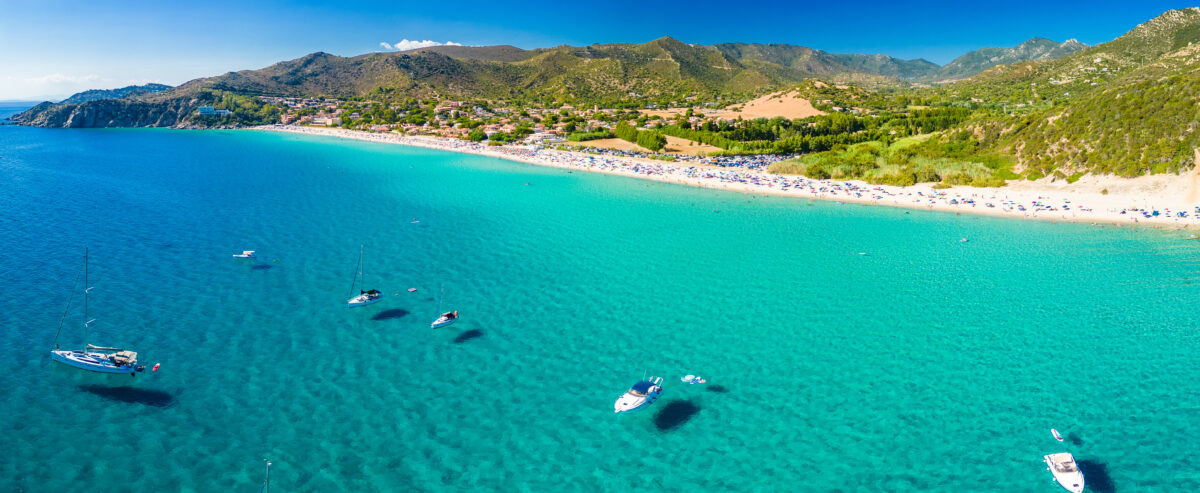Planning a European beach vacation in 2025? Smart travelers need to know about new regulations sweeping across coastal destinations. With fines reaching €3,000 for common tourist behaviors, understanding these rules can save your wallet and vacation.
European authorities report issuing over 50,000 beach-related fines in 2024 alone. Local councils across Spain, Italy, Portugal, and Greece have implemented stricter enforcement measures to protect their coastlines and manage record-breaking tourism numbers. With 1.4 billion nights spent in EU coastal regions and 42% of Europe’s accommodation capacity concentrated in beach areas, these regulations aim to balance tourism with environmental protection.
1. Ocean Urination Ban – Fine: €750

Vigo in Spain’s Galicia region made international headlines by explicitly banning urination in the sea. Laboratory tests revealed concerning contamination levels at popular beaches, particularly Playa Jardin. The €750 fine applies to anyone caught in the act.
Where it applies: Vigo (Spain), with similar measures under consideration in Malaga and Marbella
Tourist tip: Beach facilities are typically located every 500 meters along major Spanish beaches. Plan bathroom breaks accordingly.
2. Smoking Prohibition – Fine: €30-€2,000
Over 600 Spanish beaches now enforce smoking bans, with Barcelona’s entire beachfront declared smoke-free in 2025. Enforcement includes electronic cigarettes and vaping devices.
Regions with beach smoking bans:
- Galicia: 82 beaches
- Andalusia: 156 beaches
- Balearic Islands: All major tourist beaches
- Canary Islands: 47 designated beaches
- France: 52 beaches including Nice and Cannes areas
Tourist tip: Look for designated smoking areas marked with signs, typically located near beach entrances.
3. Beach Reservation Tactics – Fine: €750

Benidorm and Calpe crack down on early-morning beach spot reservations. Setting up umbrellas, chairs, or leaving towels before 9:30 AM results in hefty fines. Local police regularly patrol beaches at dawn, confiscating abandoned items.
Fine amounts by location:
- Benidorm: €750
- Calpe: €250
- Malaga: €300
- San Sebastian: €450
Tourist tip: Many beaches offer rental services opening at 9:00 AM. Book premium spots through official beach club apps instead of DIY reservations.
4. Midnight Swimming Ban – Fine: €1,200
Benidorm prohibits both swimming and sleeping on beaches between midnight and 7:00 AM. Night swimming poses serious safety risks, with reduced visibility and no lifeguard coverage.
Cities with nighttime beach bans:
- Benidorm: Midnight to 7 AM
- Valencia: 11 PM to 6 AM
- Santander: 10 PM to 8 AM
- Porto (Portugal): 11 PM to 7 AM
Tourist tip: Hotels often feature 24-hour pools for late-night swimming enthusiasts.
5. Protected Beach Access – Fine: €3,500

Italy’s famous Spiaggia Rosa (Pink Beach) in Sardinia remains completely off-limits since 1998. Enhanced surveillance using drones and security cameras catches trespassers attempting to access this protected natural wonder.
Other restricted beaches include:
- Pelosa Beach, Sardinia: Entry fee €3.50, daily cap 1,500 visitors
- Lu Impostu, Sardinia: Maximum 1,500 daily visitors
- Brandinchi, Sardinia: Capped at 3,300 visitors
- Seitan Limania, Crete: Access restrictions during peak hours
Tourist tip: Book restricted beach access online 48 hours in advance during peak season (June-September).
6. Selfie Spot Restrictions – Fine: €275
Portofino banned photography in designated congestion zones after social media-driven tourism created dangerous bottlenecks. Two specific red zones near the harbor prohibit stopping for photos during peak hours (10 AM – 6 PM).
Similar restrictions apply in:
- Cinque Terre hiking trails
- Amalfi Coast viewpoints
- Santorini sunset spots
- Venice bridges
Tourist tip: Visit Instagram-famous locations during early morning hours (before 8 AM) for crowd-free photos.
7. Beach Dress Codes – Fine: €750
Walking through city streets in swimwear draws significant fines across Mediterranean destinations. Albufeira, Portugal, recently increased penalties to €1,500 after viral incidents involving underdressed tourists.
Cities enforcing swimwear restrictions:
- Barcelona: €500
- Mallorca: €600
- Sorrento: €500
- Dubrovnik: €150
- Nice: €385
Tourist tip: Pack a lightweight cover-up or sarong for transitions between beach and town.
8. Noise Violations – Fine: €750

Portugal leads Europe’s crackdown on beach noise pollution, with potential fines reaching €36,000 for extreme violations. Most beaches prohibit portable speakers, amplified music, and loud gatherings.
Noise restriction levels:
- Portugal: Up to €36,000 for speakers
- Spain: €750 for music devices
- Greece: €350 for disturbances
- Croatia: €200 for loud groups
Tourist tip: Use headphones for personal music. Many beaches offer silent disco events as alternatives.
9. Beach Equipment Rules – Fine: €3,000
Unauthorized tents, professional photography equipment, barbecues, and sports activities face strict regulations. Valencia specifically bans overnight camping equipment with fines ranging from €1,501 to €3,000.
Commonly restricted items:
- Camping tents or large shelters
- Barbecue equipment (without permits)
- Paddle tennis or volleyball nets
- Drones for photography
- Glass containers
Tourist tip: Check municipality websites for equipment rental options and designated activity zones.
See Related: Stunning European Beaches You Must Visit
Essential Tips for Beach-Smart Travelers
Before You Go:
- Download municipal beach apps for real-time rule updates
- Check specific beach regulations on official tourism websites
- Screenshot important rules in local language for reference
- Budget extra funds for potential beach access fees
Smart Beach Strategies:
- Arrive after 9:30 AM to avoid reservation conflicts
- Use official beach facilities and services
- Respect quiet hours (typically 2-4 PM siesta time)
- Follow lifeguard instructions immediately
- Keep receipts for any beach-related purchases
Red Flag Warning: Swimming under red flag conditions triggers automatic €3,000 fines in most Spanish coastal areas. Authorities use drone surveillance and can issue fines electronically.
See Related: Best Beach Vacations in Europe
Know Before You Go: Regional Quick Reference
Spain (Highest Enforcement):
- Most fines: €30-€3,000
- Strictest beaches: Benidorm, Barcelona, Mallorca
- Peak enforcement: July-August
Italy (Access Restrictions):
- Focus on overcrowding prevention
- Advance booking often required
- Protected areas heavily monitored
Portugal (Noise Control):
- Highest fines for audio equipment
- Strict dress codes in beach towns
- Year-round enforcement
Greece (Seasonal Variations):
- Rules vary by island
- Peak season restrictions May-October
- Focus on environmental protection
The Bottom Line
European beach regulations reflect growing concerns about overtourism, environmental protection, and local quality of life. With coastal tourism generating over €183 billion annually and projected to reach €284 billion by 2035, authorities balance economic benefits with sustainable practices.
Smart travelers research specific destination rules, respect local customs, and embrace these regulations as part of preserving Europe’s spectacular coastlines for future generations. A little preparation prevents vacation-ruining fines and ensures everyone enjoys paradise responsibly.
Remember: These rules exist to protect both the environment and your safety. By following them, you contribute to sustainable tourism and help maintain Europe’s beautiful beaches for years to come.
Leave a Reply